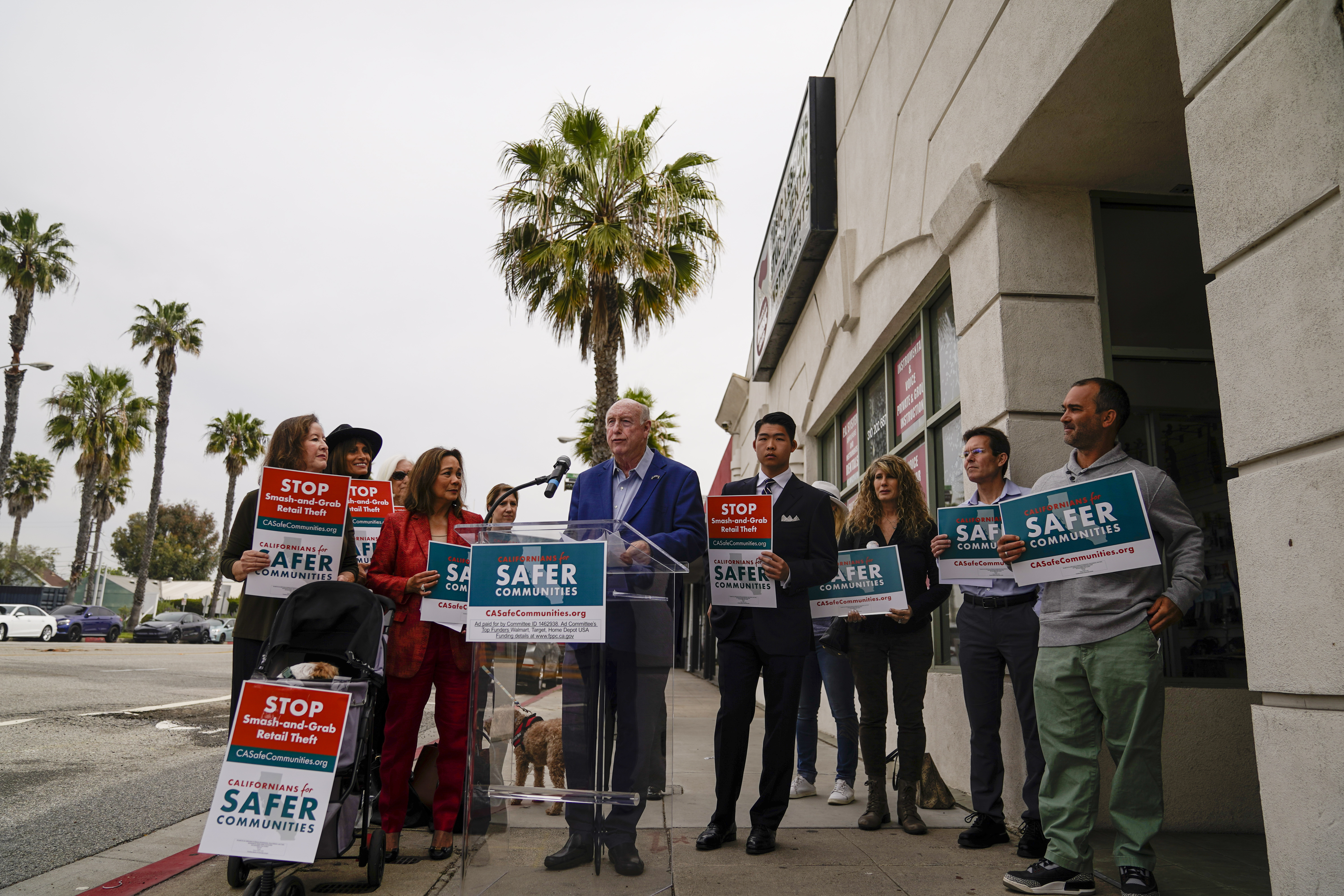It’s quite entertaining when interviewing the five men and one woman who make up The Business — Chris Garcia, Caitlin Gill, Sean Keane, Alex Koll, Bucky Sinister and Chris Thayer — the regulars of the Wednesday night comedy showcase in The Mission.
Ask them a question or two and they get rolling — feeding each other set-ups and eventually taking over the interview. We gathered before a show earlier this month at The Dark Room, 2263 Mission St., and the familial vibe was bouncing off the walls, into the comfy lounge couches and right past the sleeping French Bulldog, Maggie.
It was like a bunch of cool cousins at a family reunion, sneaking off somewhere for a pilfered beer — and then the wacky aunt, Dark Room co-owner Erin Ohanneson, walked in.
“I like everybody here a lot,” she purred.
“Who do you like the least?” I joked. Her reply: “You, so far!”
And we were off!
Corey Andrew: Did you pick Wednesdays because they were open?
Local
Bucky Sinister: They weren’t really doing other things here on Wednesdays, so when we said we want to have it for a year, we weren’t bumping anything.
Caitlin Gill: We also work comedy clubs, so we need Thursday nights through Sunday nights free.
Sean Keane: When we started, we certainly weren’t thinking three years down the line. It was a great spot to get to do longer sets than we could do at open mics or other clubs—beyond stuff we would put on ourselves.
Alex Koll: At the beginning, we would do 20 to 30 minutes each. That was the whole idea behind it. That was way too much for an audience. For some of us, not enough; we can keep going and going. We had to make a pact that no matter how many people were in the audience, we would do the show — even if one person showed up or nobody.
Corey: What were the nobody shows like?
Chris Garcia: They were still great.
Alex: If there were as many people in the audience as there were people on stage, we would call it a fair-fight night.
Bucky: The really good thing is to be able to follow the progression of someone’s stuff week after week. One week, it’s just an idea — something happens to one of us. As weeks go by, it gets cleaner and cleaner until it becomes an actual bit you can do in a club. Chris’ dad went missing and they found him right before the show happened. He talked about this completely raw and open. After a couple months, it worked into a finely-crafted thing.
Chris Garcia: I felt so lucky. I was thinking about that today. My dad has Alzheimer’s and he’s in deep stages of dementia and one day, he was just missing. I found out at 6 p.m. that he had been missing all day, because my parents are in Los Angeles. So, the two hours after that until 8 o’clock were the craziest hours of my life — and then they found my father. I got a phone call that everything was OK. I sprinted here, I did the show and it’s the favorite I’ve ever done in my life. And I couldn’t necessarily do that at a club or anywhere else. I cried onstage. I’ve never done that before. Only maybe six people were here; it was light. But, I’d never gotten such great feedback where everyone wrote me after the show and stuff like that. This has helped all of us, processing our lives. It’s made us all great comics. I’m gonna go ahead and say we’re great.
Bucky: I should add, even though he was crying, people were laughing. It was a very emotional, but funny set.
Sean: The faces he makes when he’s really sobbing are incredible.
Corey: Can you guys talk a little about the formation of the core?
Alex: One night, Bucky and I were across the street at Taqueria Cancun. He said, ‘I don’t care if anyone shows up, I’m gonna move into a storefront, leave the doors open and just talk. If people show up, they show up and if not, they can walk on by.’ For some reason, I thought that was a really good idea.
Bucky: He said, ‘I’ll split it with ya’!’
Alex: We said if we can find a place, let’s not worry about making money. We can take a loss for a little bit and try to break even the rest of the time. It’s really hard when you’re practicing stuff to do anything over 5 or 10 minutes in showcases. That’s the limit. We’re lucky if we can get 10-15 here in San Francisco. I was starting to get longer sets and I wanted to practice it. That’s how it came to be. We kind of roped Sean and Chris into it.
Chris Garcia: I heard you guys talking about it and thought, ‘You are both gonna talk for an hour where no one is gonna be listening?’
Sean: ‘That’s crazy. Why don’t me and Chris get in there and talk for half an hour with no one in there in an empty storefront.’
Bucky: I’m at a point in my life where I can’t go out to the weird open mics and wait around for three hours to get on stage for five minutes. Part of my process, too, is I start with a long story and hone it down to something smaller. That’s the only way I know how to write. I really wanted to look into how much places were to rent. There’s something cool about being in the same spot. The lights are the same, the seats are the same and the stool’s the same. And I wear the same thing every Wednesday.
Corey: Is Thursday your laundry day?
Bucky: Yeah, I guess. Corey: Let’s say there are 300 working comics in the Bay Area. How many of them are beating down your door to get a spot?
Alex: 300.
Chris Garcia: 400.
Bucky: If you have a crowd, people want to do your show. I don’t care where it is, no matter how bad the place might be. ‘I have a show at the sewage treatment plant, but I’m getting 100 people a week.’ People are like, ‘Who books that?’ People didn’t want to do it until we started getting people. Then they said, ‘I wanna do it!’
Chris Garcia: We had four; now we have six, so it brings variety to the guests we have because we all mix with different people. Bucky brings in poets and spoken word people. We’ve all traveled to different parts of the country where we network with different people.
Bucky: On June 20, I booked Amy Reed. She’s a young adult novelist. She’s got a lot of stories about teenage embarrassment and humiliation, which kind of overlaps into what we talk about. I thought it would be a good fit, so we’ll see how it works.
Alex: You know other comics for so long and you just see them in the club and see their routine. For us, it was sort of like a game to see who we could get in and just break their routine a little bit.
Chris Thayer: I think this was the first show where I stopped doing stuff that was just jokes. I remember a specific set I had in January of last year. It was the first show where I felt like I was talking onstage, other than just doing my set. I have never been able to go back, for better or for worse.
Chris Garcia: I think something has happened to all of us as a result of us having to do a half hour each. I think Bucky was a big influence on this. I think we all evolved to becoming storytellers because we had to fill that time. We couldn’t just do the same jokes week after week. We had to draw things out. All of us have changed because of the show.
Chris Thayer: I call it long-form stand-up rather than storytelling.
Caitlin: We also get really experienced at taking risks. We look stronger everywhere we go, because even if it doesn’t work, we’re absolutely not afraid of that. That relaxes an audience so much. When you have 30 minutes to fill up and if in the first five something doesn’t work, you have to figure out how to climb the rest of the mountain. And you do. You don’t want to necessarily do that in the clubs with your feature set. This is a great place to learn — I don’t know if you learn confidence or build it — but something does change. Then you just know you have that in you. You know how to take the risks.
Sean: I’d also say our crowds were not initially necessarily stand-up fans. Stuff that didn’t seem authentic did not do as well. If you’re telling straight absurdist jokes, that can work, but when it’s kind of a story but it doesn’t ring very true, that got beaten out of our sets pretty early.
Bucky: If you’re talking about something that really happened to you, they’re with you. If you’re just trying to be cool, they ignore you. They don’t buy it.
Corey: That can be a good thing, because for some people, it’s easy to get on autopilot when you have your seven minutes. The rhythms are the same and you can do it and not even realize you did it 15 minutes later.
Alex: I just want to reiterate that we’re great.
Chris Thayer: Why did you guys decide to go from four to six?
Sean: There are a lot of imminent moves happening. We knew we wouldn’t always have the same four. We were lucky enough to get our top two picks of people in the Bay to come in. Caitlin and Chris Thayer had done the show a lot and matched the same sensibility.
Bucky: Chris Thayer has a lot of pictures of me I don’t want him to show.
Corey: I’m sorry to tell you he’s already sent a few out.
Chris Garcia: Caitlin and Chris are awesome and they were doing some different things. They just got it. We knew they would get a lot out of it.
Corey: This question I wrote just a couple hours ago is already dated, because he shaved it, but what does Alex’s beard smell like?
Alex: I have it in the car. I always keep a spare one under the seat. It’s a life saver. Fields of gold, that’s what it smells like.
To get two-for-one tickets to see The Business — an already amazing bargain at $5 each — visit thebusinesscomedy.blogspot.com.
Corey Andrew has been interviewing comedians and writing about comedy for the last decade and a half. In 2011, he published the book, “Laugh Lines: Conversations with Comedians.”
Corey was a writer and performer with Midwest sketch troupe, The NonProphets, before moving to the Bay Area with his family a few years ago. If you have ideas for future columns about comedy, you can send them to coreywrites@yahoo.com and follow him at twitter.com/coreywrites.



